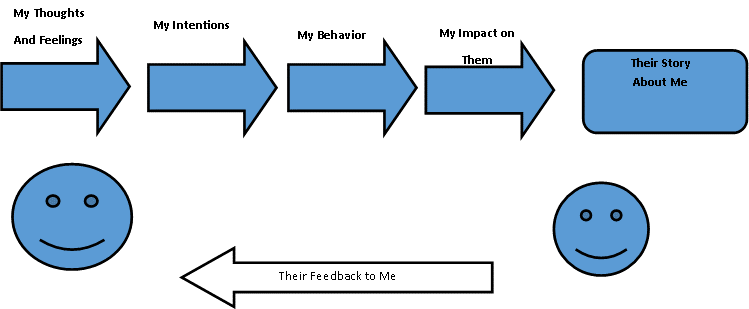Have you ever stopped to consider what is need to effectively apologize?
Like most experiences–food, movies, music, books, education, vacations, first dates, interviews, sales conversations, etc.–the difference between effective and “good enough” is due to the inclusion or absence of the essential ingredients required to produce the desired outcome.
Sheila Heen succinctly distills what is required for an effective apology on the Tim Ferriss Show:
“Part of what of makes an apology meaningful is that you are genuine in owning something that you have CONTRIBUTED to the problem and you are acknowledging the IMPACT that it had on them.”
Sheila Heen
Upon hearing this, I immediately perked up, not just because the insight is so profound and useful, but because I recognized a very important PATTERN.
The two ingredients that Heen cites as necessary for an effective apology–CONTRIBUTION and IMPACT–are the same two ingredients that Simon Sinek cites as necessary for crafting your “WHY” (purpose) statement.
For example, my WHY consists of my intended CONTRIBUTION, which is:
“To equip people to become extraordinary lifelong learners about themselves, others, and their pursuits”
Said simply, my contribution is my highest context for what I actively intend to do for others (equipping people 2 EVOLVE)
and my intended IMPACT, which is:
“so that they are more capable of living interesting, fulfilling, and meaningful lives.”
Said simply, my impact is the difference I seek to make in the lives of others (evolution for the sake of living a life that is more interesting, fulfilling, and meaningful).
This realization regarding the transcendent nature of both CONTRIBUTION and IMPACT continues to be monumental for me.
In my constant pursuit to “break down the artificial barriers between our diverse life experiences so all moments become enriched by a sense of interconnectedness“, I believe I uncovered another first principle that covers a LOT of ground.
It all comes down to… CONTRIBUTION and IMPACT.
Regardless of whether we are being intentional about our leadership philosophy, determining WHY our organization exists, making a sale, or saying sorry, it is of principle importance that we consider and acknowledge both our CONTRIBUTION and IMPACT.
In order to effectively consider and acknowledge both, it is helpful to analyze, seek feedback, and discuss intentions (contribution) and impact separately. Sheila Heen, in conversation with Tim Ferriss, goes on to say, the receiver of the apology is looking for you, the apologizer, to:
- Own and take responsibility for whatever you CONTRIBUTED to the problem
- Really see and care about the IMPACT it had on them, as opposed to explain it away or minimize it.
Similarly, in Thanks for the Feedback, Heen and Stone assert that one of the biggest communication breakdowns when having a conversation about feedback is that
“We judge ourselves by our intentions (arrow 2), while others judge us by our impacts (arrow 4). Given that even good intentions can result in negative impacts, this contributes to the gap in the story you tell about me versus the story I know is ‘true.'”
p. 88

So, where do we go from here?
As I reflect on this further, I have distilled two actionable takeaways that I recommend you cultivate and practice:
- START with WHY. We have little control over the impact that we have on others because that is largely dependent on their unique context, judgments, preferences, and habits of meaning making. However, we can control how explicit and declarative we are about our intentions. Unfortunately, for most of us, it is not our habit to lead with our intentions, let alone reveal them publicly.
“If it’s worth doing, it’s worth establishing WHY we are doing it, and once we establish WHY we are doing it, we are ON THE HOOK to keep our commitment.”
The Practice, p. 120
2. Encourage others to hold you accountable to the specificity of what you seek to CONTRIBUTE, and give you feedback about how effective you are in delivering what you promised would be the benefits (IMPACT) of your contribution.
In the spirt of this recommendation, I ask you, the reader:




